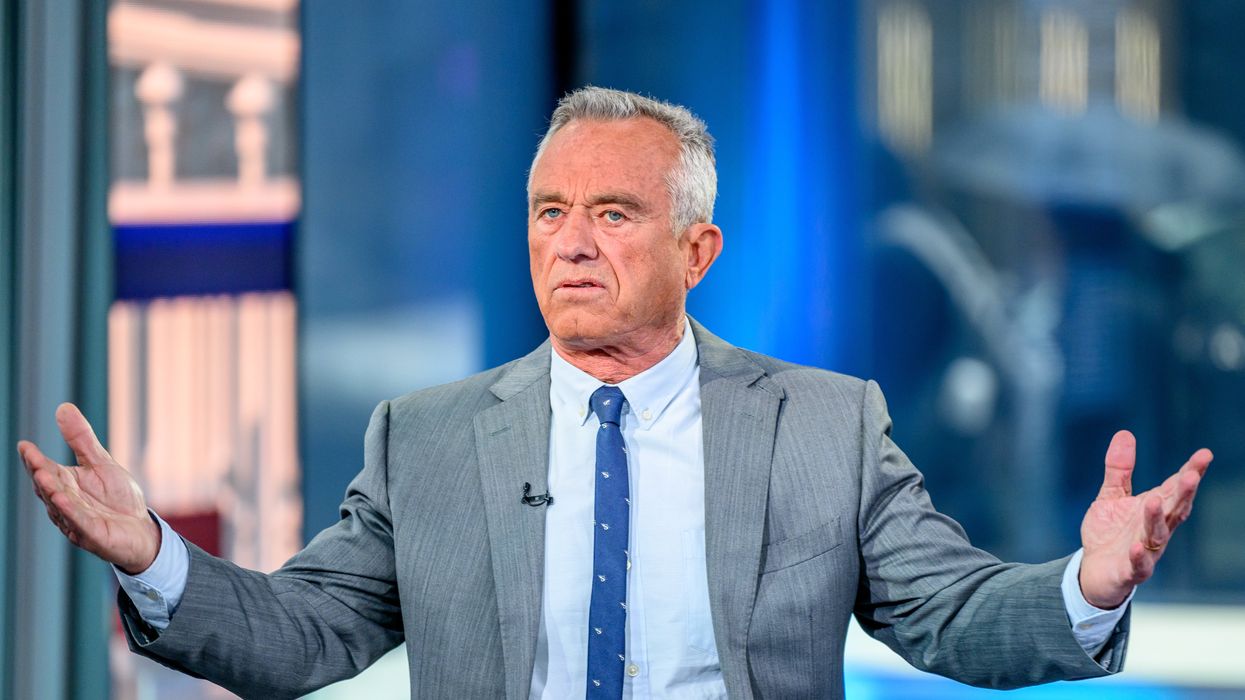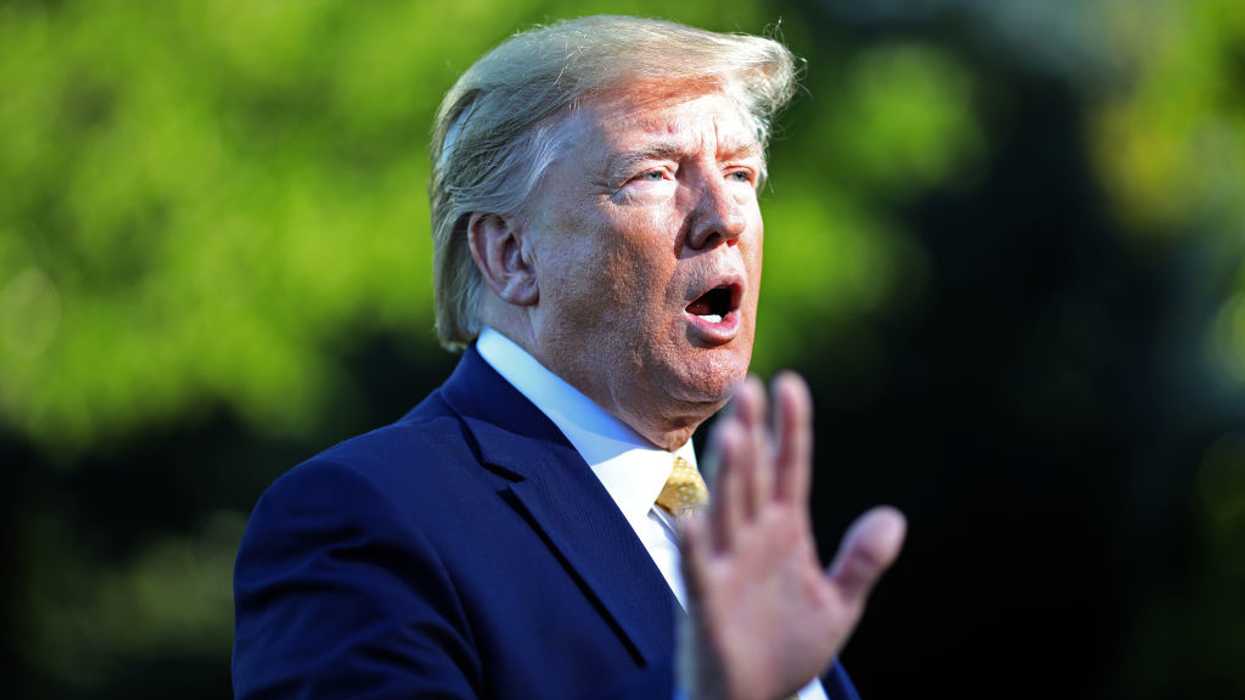Goldberg is editor-in-chief of The Dispatch and the host of The Remnant podcast. His Twitter handle is @JonahDispatch.
American politics is so intensely stupid and nasty that it sometimes seems as if somebody made a series of wishes with a monkey's paw. The dark moral of "The Monkey's Paw," a 1902 short story by the English writer W.W. Jacobs that became a pop culture trope, is that you should be careful what you wish for because you just might get it.
In 2008, the widespread wish for an African American president who would usher in a new "post-racial" politics yielded to an era of heightened obsession with and tensions over race. In 2016, the ancient dream of a capitalist outsider who would run government like a business delivered a man who ran the government like it was in the business of promoting and enriching him. In 2020, the notion that a non-military threat could unite a divided country around a common challenge gave way to sharp polarization over the management, treatment and origins of the COVID-19 pandemic.
And then there's the dream of the third-party or independent candidate who can break the Republican-Democratic duopoly and deliver rational politics and policies unbeholden to special interests and fringe ideologues. Few scenarios are more attractive to Americans exhausted by the partisan bickering and sclerosis that define Washington.
The hitch is that while voters and donors love the idea in the abstract, many recoil in the face of a flesh-and-blood third-party candidate. Organizations such as No Labels and the Libertarian and Green parties rightly highlight voter hunger for an alternative to Donald Trump and President Biden, but they have struggled to find a human as popular as the wish.
In some respects, Robert F. Kennedy Jr. looks just like what people are longing for. He rejects both parties. And he claims to want to break the stranglehold of government bureaucracy, the cult of experts and the outsize power of corporate interests.
But while the wish is for a passionate centrist independent of the extremes, Kennedy in reality is a crank who attempts to transcend left and right by peddling a dog's breakfast of conspiratorialism from across the ideological spectrum.
Long before Trump, RFK Jr. was the original election denier, insisting that Republicans stole the 2004 election. Before COVID-19, Kennedy was already famous for falsely claiming that all vaccines are dangerous and that some cause autism. He also stands by his claim that cellphones and Wi-Fi cause cancer despite the lack of evidence of an increase in cancer rates amid exploding use of those technologies.
Kennedy's default position is that official explanations are suspect, which is another way of saying that all conspiracy theories -- from 9/11 trutherism to fringe theories about the assassination of his own father to the idea that the COVID-19 virus was engineered to spare Jewish and Chinese people -- deserve the benefit of the doubt. It's as if his entire political persona were designed to monetize what the political historian Richard Hofstadter called "the paranoid style in American politics." It's a testament to the pervasiveness of the paranoid style that it's difficult to figure out which party Kennedy will take more votes from.
"Our campaign is a spoiler all right," Kennedy said last week while announcing his running mate, Nicole Shanahan, in Oakland. "It is a spoiler for President Biden and for President Trump."
But there's the rub: The same duopoly that Kennedy is running against ensures that he can be a spoiler for only one candidate. Hofstadter also said, "Third parties are like bees: once they have stung, they die." And the party they sting is the one they are closest to. As of now, it looks like Kennedy wants to sting leftward, at Biden. His choice of Shanahan -- a progressive, young, Asian American, California-based tech lawyer -- is one indication. Another: Timothy Mellon, the biggest donor to Kennedy's Super PAC, is also the biggest donor to Trump's. It seems unlikely that spoiling Trump's candidacy would be his priority.
In Jacobs' story (spoiler alert), the protagonist uses the monkey's paw to wish for 200 pounds to pay off his mortgage. The next day, he learns that his son was fatally mangled in an industrial accident and receives a bereavement payment in that amount. After the funeral, the grieving father wishes his son brought back to life. But as he hears a knock on the door, he realizes that the fulfillment of his wish would be a disfigured abomination and, panicked, makes his last wish. When he opens the door, no one's there.
If you've ever fondly wished for deliverance from our two-party system, the man you hear knocking is Robert F. Kennedy Jr.
First posted April 3, 2024. (C)2024 Tribune Content Agency, LLC.




















Eric Trump, the newly appointed ALT5 board director of World Liberty Financial, walks outside of the NASDAQ in Times Square as they mark the $1.5- billion partnership between World Liberty Financial and ALT5 Sigma with the ringing of the NASDAQ opening bell, on Aug. 13, 2025, in New York City.
Why does the Trump family always get a pass?
Deputy Attorney General Todd Blanche joined ABC’s “This Week” on Sunday to defend or explain a lot of controversies for the Trump administration: the Epstein files release, the events in Minneapolis, etc. He was also asked about possible conflicts of interest between President Trump’s family business and his job. Specifically, Blanche was asked about a very sketchy deal Trump’s son Eric signed with the UAE’s national security adviser, Sheikh Tahnoon.
Shortly before Trump was inaugurated in early 2025, Tahnoon invested $500 million in the Trump-owned World Liberty, a then newly launched cryptocurrency outfit. A few months later, UAE was granted permission to purchase sensitive American AI chips. According to the Wall Street Journal, which broke the story, “the deal marks something unprecedented in American politics: a foreign government official taking a major ownership stake in an incoming U.S. president’s company.”
“How do you respond to those who say this is a serious conflict of interest?” ABC host George Stephanopoulos asked.
“I love it when these papers talk about something being unprecedented or never happening before,” Blanche replied, “as if the Biden family and the Biden administration didn’t do exactly the same thing, and they were just in office.”
Blanche went on to boast about how the president is utterly transparent regarding his questionable business practices: “I don’t have a comment on it beyond Trump has been completely transparent when his family travels for business reasons. They don’t do so in secret. We don’t learn about it when we find a laptop a few years later. We learn about it when it’s happening.”
Sadly, Stephanopoulos didn’t offer the obvious response, which may have gone something like this: “OK, but the president and countless leading Republicans insisted that President Biden was the head of what they dubbed ‘the Biden Crime family’ and insisted his business dealings were corrupt, and indeed that his corruption merited impeachment. So how is being ‘transparent’ about similar corruption a defense?”
Now, I should be clear that I do think the Biden family’s business dealings were corrupt, whether or not laws were broken. Others disagree. I also think Trump’s business dealings appear to be worse in many ways than even what Biden was alleged to have done. But none of that is relevant. The standard set by Trump and Republicans is the relevant political standard, and by the deputy attorney general’s own account, the Trump administration is doing “exactly the same thing,” just more openly.
Since when is being more transparent about wrongdoing a defense? Try telling a cop or judge, “Yes, I robbed that bank. I’ve been completely transparent about that. So, what’s the big deal?”
This is just a small example of the broader dysfunction in the way we talk about politics.
Americans have a special hatred for hypocrisy. I think it goes back to the founding era. As Alexis de Tocqueville observed in “Democracy In America,” the old world had a different way of dealing with the moral shortcomings of leaders. Rank had its privileges. Nobles, never mind kings, were entitled to behave in ways that were forbidden to the little people.
In America, titles of nobility were banned in the Constitution and in our democratic culture. In a society built on notions of equality (the obvious exceptions of Black people, women, Native Americans notwithstanding) no one has access to special carve-outs or exemptions as to what is right and wrong. Claiming them, particularly in secret, feels like a betrayal against the whole idea of equality.
The problem in the modern era is that elites — of all ideological stripes — have violated that bargain. The result isn’t that we’ve abandoned any notion of right and wrong. Instead, by elevating hypocrisy to the greatest of sins, we end up weaponizing the principles, using them as a cudgel against the other side but not against our own.
Pick an issue: violent rhetoric by politicians, sexual misconduct, corruption and so on. With every revelation, almost immediately the debate becomes a riot of whataboutism. Team A says that Team B has no right to criticize because they did the same thing. Team B points out that Team A has switched positions. Everyone has a point. And everyone is missing the point.
Sure, hypocrisy is a moral failing, and partisan inconsistency is an intellectual one. But neither changes the objective facts. This is something you’re supposed to learn as a child: It doesn’t matter what everyone else is doing or saying, wrong is wrong. It’s also something lawyers like Mr. Blanche are supposed to know. Telling a judge that the hypocrisy of the prosecutor — or your client’s transparency — means your client did nothing wrong would earn you nothing but a laugh.
Jonah Goldberg is editor-in-chief of The Dispatch and the host of The Remnant podcast. His Twitter handle is @JonahDispatch.